Aging can be a challenging time for anyone but people with the debilitating, chronic disease of myalgic encephalomyelitis (ME) often find that their symptoms are dismissed as a “normal” part of aging, and so are left without the diagnosis, care and support that they need from their medical providers and community to manage and treat a complex disease like ME.
For seniors who have had ME for decades, they also mourn the lives that they have missed due to the neglect of this disease.
From May 5th to May 12th, the ME community around the world is fighting for justice for people with ME. We are the Millions Missing! Learn more at millionmissing.org.
Read the stories of seniors talk about living with ME.
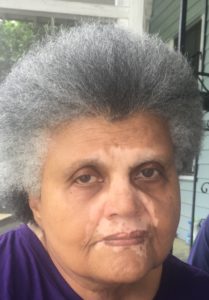 I will be 70 on my next birthday. I became sick with ME/CFS when I was 33. Full of excitement about what I was doing, what was ahead. I taught physics; I did research in physics; I loved physics. When I became sick, the physics that I so loved became impossible. My brain couldn’t even understand my own work. I vanished from the world of physics and from my colleagues’ minds. They went on to the careers that we had dreamed of – I was at home in bed.
I will be 70 on my next birthday. I became sick with ME/CFS when I was 33. Full of excitement about what I was doing, what was ahead. I taught physics; I did research in physics; I loved physics. When I became sick, the physics that I so loved became impossible. My brain couldn’t even understand my own work. I vanished from the world of physics and from my colleagues’ minds. They went on to the careers that we had dreamed of – I was at home in bed.
Year after year, I tried to sustain my dreams, although they became smaller with each passing year. Now all of the people I once knew are retiring after fulfilling careers. I am still at home. I watch as bits of my small life continue to fall away with each passing year. Things that I could do just a few years ago are impossible now. Loss after loss, year after year, decade after decade.
Now my dreams of treatments and possibly a cure are not for myself. I dream for a younger generation, calling for the research that will allow them to return to the full lives that they long for. I will not stand by as they endure the losses that I have experienced. I am old. But fighting for justice for people living with ME/CFS has no age limit.
– Wilhelmina Jenkins, Atlanta
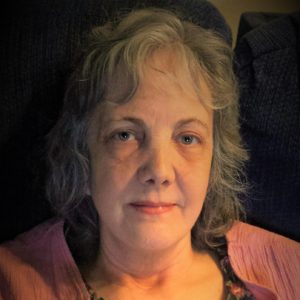 Three Decades with ME.
Three Decades with ME.
First decade: “I think I can, I think I can, I think I can.” I don’t really see any choice as I’m a single mom and MUST be there for my kids. Home schooling them (since I’ve had to retire from teaching), as that is easier – both “schedule” wise (no such thing!) and because teaching just comes naturally to me. Thankful to be able to retain that small part of my identity, as I’ve had to give up working for an employer and all volunteer work – and that was painful.
Second decade: This was the best I ever felt living with ME. My kids were grown. I could now pace and do only what’s necessary, only when I felt up to it. Meals on my own time. Disability case won and financial aid programs in place, so less paperwork and less fear.
Third decade: Aging means now my parents need my help. One lives with me, and the other across town. I’d like to be more help, but ME is making what little help I can offer them supremely challenging. Now I have grandchildren I’d LOVE to be teaching. I do my best to spend time with them, as it is worth the expense to my energy budget. I seem to have even less energy and cognitive function (even with the coping mechanisms in place after decades with ME). Is it “only” aging, or is it losing some control over my ability to pace or only do things when I feel up to it, now that so many other people’s needs are putting demands on my time and energy? The thing I miss most is losing my ability to cope gracefully.
– Nan, Columbia, MO
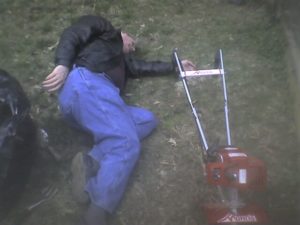 In the spring of 2002, I started to till our small vegetable garden. After only one row, I was beyond exhausted and stumbled into our house to collapse on the couch. This made no sense, as I had been tilling our gardens for years. My stamina and my ability to recover from exertion seemed to have evaporated into thin air. Eight months and referrals to 3 doctors later, I was diagnosed with ME/CFS.
In the spring of 2002, I started to till our small vegetable garden. After only one row, I was beyond exhausted and stumbled into our house to collapse on the couch. This made no sense, as I had been tilling our gardens for years. My stamina and my ability to recover from exertion seemed to have evaporated into thin air. Eight months and referrals to 3 doctors later, I was diagnosed with ME/CFS.
As the sole source of income for my family, I continued going in to work, but found myself needing to take off more hours every week, and spending entire evenings collapsed on the couch. Eventually my employer fired me. Now we get by on social security (one advantage of getting ME later in life and surviving ME into old age), and hiring help with our vegetable garden and other tasks around the house. At age 78, my stamina and even my ability to read, think and write are steadily fading. This candid photo was taken by my wife 10 years ago, after the last time I thought I could till just a little bit by myself with a smaller tiller. Apparently, I could no longer even make it into the house to collapse.
– Tom, Columbia, MO
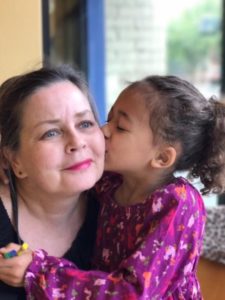
Forty years a special education teacher, now I cannot care for my precious granddaughter.
– Becca | Edina, MN
I am in my 60s and had reasonable health for a few years before being hit with Labyrinthitis, a virus that affects the inner ear and therefore balance. After 10 months I realised the extreme symptoms had reduced but so many other symptoms had taken their place. My doctor diagnosed Post Viral Fatigue Syndrome. I asked him what I could do about the host of symptoms I experienced. He said, “Develop a philosophical attitude.” He offered no support at all.
When my vision blurred, I went to the same GP who said it was age related. When I had pain in my neck and shoulder, again I was told it was age related. The horrible sensations in my feet were nerve damage that was something people of my age had. My insomnia was because i did not practice good sleep hygiene. As with many others, I have become more expert in the symptoms and would really advise doctors against looking at age as the first line diagnosis. Aging with ME is bad enough without confusing the issue.
– Elaine, Taunton, UK
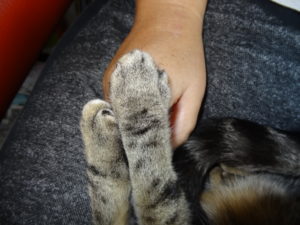 My whole life was taken from me when I was 27. I’m 57 now and will never know anything else but sickness, disability, weakness, exhaustion. Old age is kicking in early as M.E. has destroyed my body. At 37 I had my menopause without ever been pregnant.
My whole life was taken from me when I was 27. I’m 57 now and will never know anything else but sickness, disability, weakness, exhaustion. Old age is kicking in early as M.E. has destroyed my body. At 37 I had my menopause without ever been pregnant.
– Tiel, The Netherlands
 Symptoms began in 1991. Diagnosis in 1994. Became disabled in 1996. I had to stop working at age 46. Had some periods when I could attend church, shop, garden a little, and travel. But as I have aged, symptoms have worsened and now I am mostly housebound. I feel forgotten and invisible. At age 69, any hope I had for recovery or improvement is gone.
Symptoms began in 1991. Diagnosis in 1994. Became disabled in 1996. I had to stop working at age 46. Had some periods when I could attend church, shop, garden a little, and travel. But as I have aged, symptoms have worsened and now I am mostly housebound. I feel forgotten and invisible. At age 69, any hope I had for recovery or improvement is gone.
– Elizabeth, Columbia, MO
As I get older my ME gradually gets worse. Still I get no care or treatment except that which I find for myself. Will I die before ME is truly recognised as a severe neurological illness?
– Brighton, UK


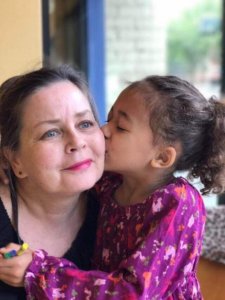

 ) and a message about #MillionsMissing with your own networks. Desktop: Download by right clicking on the image or clicking on the download icon in the bottom right corner of the image. Mobile:
) and a message about #MillionsMissing with your own networks. Desktop: Download by right clicking on the image or clicking on the download icon in the bottom right corner of the image. Mobile:

5 thoughts on “The Unique Challenge of Aging with M.E.”
Thank you all for bravely telling your stories.
Your experiences and advocacy are valuable to the ME community.
Even though you’ve had to give up so much, you contribute in ways you may not be able to see, and the ripple effects of your efforts continue on.
I commend you all for hanging in there through the daily struggles.
Yes I also appreciated these stories, very brave. And also your comment Nancy. It’s good to shed light on our illness. Almost the worst aspect of ME/CFS is others either dismissing or ignoring my illness completely, I think I find that the saddest and most puzzling aspect. Even close friends, or those I used to have. Maybe it’s because I’m an upbeat sort of person, but still it’s hard when one’s difficulties are completely ignored. I think it’s hard because one gets to feel discounted in another way in top of the illness.
I’m 58 and had ME/CFS in my 20s and then again in my 40s and 50s.
My 50s there have been a few improvements. I have less nausea though my aching and pain levels and fatigue are the same. But ageing now seems to make it harder to get out of bed which is frustrating. I think also I have started to get anxiety because it
seems a bit harder to cope with everyday demands of life. I’ve just tried to recently accept my limitations, just aim to do one or two things a day, and not beat myself up about that. Be grateful and enjoy those things I can do for however short a time. Also going to bed and rest for 10-15 minutes a couple of times a day is my new idea, don’t know if that will help with daily stress!
Thinking of all the ME /CFS sufferers out there and sending you best wishes and hoping we find some peace and happiness in whatever way we can.
Thank you for sharing your personal experiences of this very debilitating disease. I find myself on the precipice of a big life decision. Wondering if I will go over the edge.
Sadly I underestimated the impact of CFS and fybromyalgia on my life because I had it under ‘control’. I was arrogant. Chnged my job and moved house. Found the job wasn’t what I thought it was going to be. A lot of non disclosure on my new employers part. My new landlord still has me in limbo living out of boxes and sleeping on a bed sofa while I wait for the promised apartment to be ready. Its been nearly 3 months!
At 52, I overestimated my capacity to cope and underestimated CFS and Fybromyalgia impact. Now everything is exhausting and I don’t know which way to turn. The thought of attempting to obtain benefits via a dehumanising and unfair system is terrifying. Have tried before many years ago without success so already know what I’m up against.
We with CFS/ME are marginalised and stigmatised by the medical profession and other agencies / governmental bodies. There is no co sostenuto approach to treatment or support. Its like living in limbo.
However, its important not to get despondent and remember who you are. Continue to let your light shine out. We are alive and still have much to give / contribute to those around us.
I’m 66- diagnosed by my doc when I was 34 or 35. It really seemed like I was losing it, so my husband divorced me. I had to stay strong for my kid, so I always continued to work as a high school teacher.,butI had lot of down time. I lived with my parents who were invaluable in helping me raise my child when I was wiped out after work. Those poor people. Tried to stay as active as I could on the good days. I got a horse, then another 22 years ago, and that’s been a blessing. I still ride- that’s my gift to myself.
I’m not really getting worse yet and I hope I don’t any time soon. This is bad enough when I crash.
I’m 69 , was diagnosed when I was 38 , I suspect I’d had it from 30 . Of late I’ve found I can do
Nothing physical , it’s frightening at times wondering if it’s the CFS or nearing my life’s end.
Such a confusing disorder , I’ve tried so many things over the decades , I’d have periods of
Achievements that I paid for afterwards however now there is nothing it’s just flat line all
The time .
Like all the experiences here it’s pointless going to the GP , I believe the best therapy is from
True friends , even though they can’t possibly understand and family who are prepared to step in when you hit the wall . The above sadly is not a luxury many have as they get to our age however
Wherever possible it’s worth thinking about who can be there for you .
Vern k
Comments are closed.